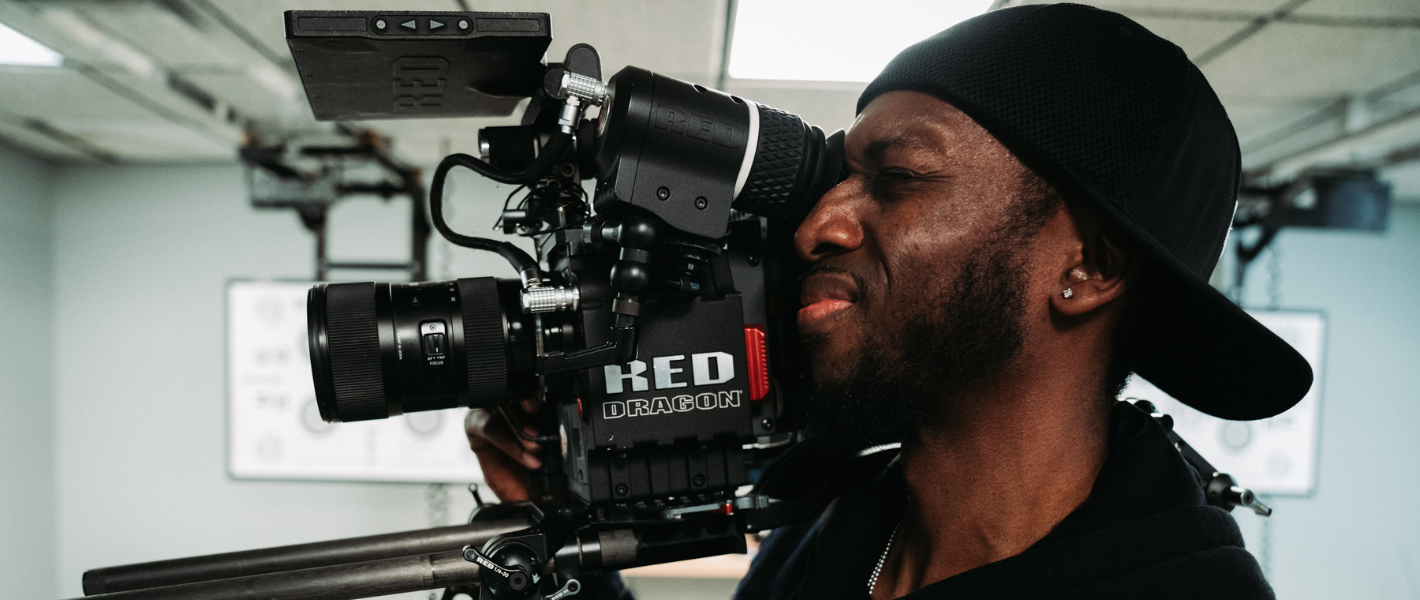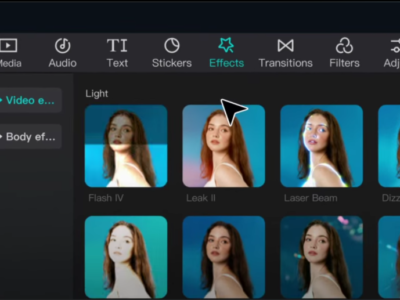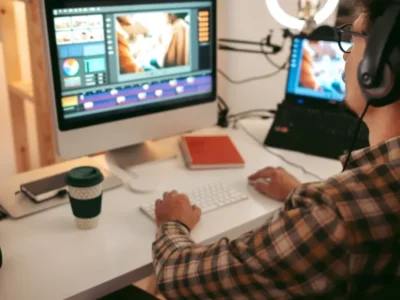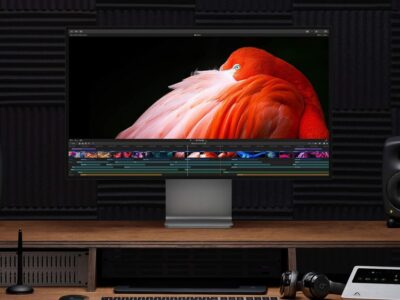Hey there, future storytellers and camera enthusiasts who wonder how to become a cameraman! So, you’ve got this burning passion for videography, right? You dream of being that awesome cameraman who captures jaw-dropping stories and makes a living doing what you love. Well, buckle up because we are about to share some killer tips to help you kickstart your adventure into the magical world of videography.
Now, being a cameraman is like being a wizard behind the lens, turning ordinary moments into cinematic masterpieces. Whether you’re daydreaming about making epic films or just love freezing moments in time, the idea of becoming a top-notch cameraman is beyond exciting.
But here’s the thing – we’re not just talking about becoming any cameraman; we’re diving into the realm of becoming a video editor too. Yep, you heard it right – the maestro who crafts those incredible stories in the editing room.
Think of this as your backstage pass to the thrilling world of videography, with a little extra focus on “how to become a video editor.” Why? Because that’s the heart of the matter – turning your love for filming into a skill set that makes you a pro at crafting stories that stick with people.
As we dive into this guide, imagine yourself as the hero of your own cinematic journey, each tip and trick a power-up to help you level up your game. Ready to transform your passion into a career? Let’s roll

1. Starting Point: Your Camera
Choosing the Right Equipment
You might think you need an expensive camera, but the truth is, as long as your camera shoots good-looking 1080p footage, you can get started inexpensively. Avoid using a smartphone or GoPro initially as they don’t teach you essential manual mode shooting and lens-changing skills. However, a smartphone is a great way to start your filmmaking journey
Recommended entry-level cameras include the Fujifilm X-S10, Panasonic G85, Canon M50, and M6 Mark II. Look for good inbuilt stabilization, a crucial feature to avoid shaky footage.
2. Learning the Craft: DIY Education
Ditch Formal Education for Hands-On Learning
Consider bypassing formal education in favor of self-learning through YouTube tutorials and online courses. While formal education may offer connections, the creative freedom you gain as a freelancer far outweighs the potential advantages.
Invest time in learning through online resources, which are not only more cost-effective but also allow you to shape your own learning journey.
3. The Art of Regular Practice
Tips for Regular Video Creation
The key to improvement lies in creating videos consistently. Don’t worry if you’re unsure about what to shoot; start with something you find interesting, like a friend’s hobby or a personal challenge you’ve overcome.
Explore travel videos for creative freedom. You don’t need to jet off to exotic locations; find beauty in your local surroundings. Vlogging is another powerful tool to enhance storytelling skills. Set challenges for yourself, focusing on capturing beautiful shots.
For a structured approach to learning, consider practical videography courses that offer exercises for skill development.
4. Edit Your Way to Excellence
Importance of Editing Your Own Videos
Editing your videos is a crucial step in the learning process. It allows you to identify areas for improvement in your shooting techniques. For example, frequent mistakes in white balance become evident during the editing process, encouraging better planning during shoots.
Editing also helps you understand the impact of your shooting style on special effects and transitions. Embrace the fun of the editing process and use free editing tools like DaVinci Resolve or explore trial versions of professional software like Final Cut Pro.
Film Composition Examples
Within this FREE PDF, you will discover:
- film composition examples in movies
- how filmmakers employ composition techniques
- how to create unforgettable cinematic experiences

5. Transitioning to Professional: Making Money as a Videographer
Strategies for Monetizing Your Skills
The time has never been better to make a living as a videographer, considering the growing demand in the market. While competition exists, the vast market offers ample opportunities for those willing to put in the effort.
Showcasing Your Work:
- Upload your videos on platforms like YouTube, Facebook, and LinkedIn.
- Don’t wait for clients to approach you; be proactive in reaching out.
- Directly message potential clients with your best videos relevant to their industry.
Offering a Taste:
- Provide a short video for free to showcase your skills.
- Create a commercial for a specific industry without a product, then offer it to companies within that industry for purchase. Insert their product or logo at the end if they agree to buy.
Pre-Made Portfolio Items:
- Even if no one buys your pre-made commercial, it serves as a valuable portfolio item and a learning lesson.
- Be creative in showcasing your skills and potential clients will take notice.
6. Consistency is Key: Regular Content Creation
Establishing Your Presence
Consistency is vital in the videography journey. Aim to produce at least one video per week, regardless of length. Regular content creation is akin to building your “camera muscles”—repetitions are essential for skill development.
Post your videos on YouTube for valuable feedback from analytics and comments. YouTube is the new film school, offering a wealth of learning opportunities.
7. Passion Over Profit
Enjoy the Process
Above all, remember that the journey is as important as the destination. If you’re genuinely passionate about videography, the process of honing your skills and building your business can be immensely enjoyable.
Embark on this journey not just for the money but for the love of videography. It’s a process that allows you to get paid while continuously improving your craft.
How to Become a Cameraman: Conclusion
In wrapping up, we want to emphasize that stepping into the shoes of a successful cameraman is a thrilling journey filled with constant learning, unleashing your creativity, and channeling that entrepreneurial spirit. It’s not just about mastering the technicalities but also about weaving your own artistic touch into every frame you capture.
As you dive into the nuances of videography, keep in mind that your success is not just about being a tech whiz; it’s about telling stories uniquely yours. Every video you create is a chance to let your voice shine in this ever-evolving field.
Stay adaptable. Videography is a dynamic space, so be open to new trends, try out fresh techniques, and use technology to amplify your storytelling prowess. It’s the blend of staying innovative yet rooted in the fundamentals that will make you stand out.
Beyond the technical side, nurture that entrepreneurial flame. Treat each project as an opportunity not just to film scenes but to offer tailored solutions. Understand your client’s evolving needs and position yourself as the go-to person for comprehensive video production.
And as you’re on this journey, consider broadening your skill set. Ever thought about how to become a video editor? It’s an essential aspect of the videography world. Learning the art of editing adds a valuable layer to what you bring to the table, allowing you to seamlessly switch roles and cater to a wider audience.
So, happy shooting and editing! Remember, being a videographer is not just a job—it’s a passionate exploration into the world of visual storytelling. With each project, you’re not just capturing moments; you’re crafting narratives that resonate. May your venture be as fulfilling as it is prosperous, and may your lens capture stories that echo across audiences. We hope you got an answer to the question of how to become a cameraman. Cheers to your videography odyssey!
Film Composition Examples
Within this FREE PDF, you will discover:
- film composition examples in movies
- how filmmakers employ composition techniques
- how to create unforgettable cinematic experiences

Explore related content

Video Editing Tips CapCut: Tips, Tricks, and Techniques
Video editing is an art, and there are proper tools and techniques, through them everybody… Read More »Video Editing Tips CapCut: Tips, Tricks, and Techniques

Factors to Consider Before Buying a Video Editing Computer
From helping grow your brand and business to editing just for fun with the love… Read More »Factors to Consider Before Buying a Video Editing Computer

Best Video Editing Monitors in 2024
In the evolving world of video production, the importance of a high-quality monitor cannot be… Read More »Best Video Editing Monitors in 2024